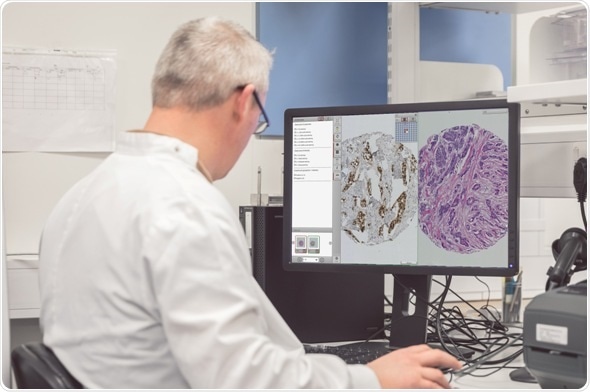Royal Philips, a global leader in health technology, today announced the launch of its Xplore web-based informatics platform for drug research and biomarker discovery. Part of Philips’ computational pathology portfolio, the new release marks a major upgrade for both pharma and academic researchers, as it will provide them with enhanced search capabilities, barcode support, data visualization tools and third party image analysis vendor integration.

With the aim to advance personalized medicine to benefit many, new drug and biomarker discovery increasingly depends on tissue pathology and the analysis of large volumes of tissue samples. The computational power of Xplore, will enable researchers to integrate data from multiple sources including digital pathology and tissue imaging, enhancing their ability to glean critical insights into disease, identify novel biomarkers and develop companion diagnostics.
Xplore is an integrated research application that allows institutions to store clinical, image analysis, molecular and summary genomic data with research pathology whole slide images or tissue microarray (TMA) studies. Enhanced search capabilities and data mining tools will help researchers quantify disease specific signatures and identify clinically significant cohorts more quickly. The web-based platform allows researchers to connect across institutions for multisite collaboration and knowledge sharing on a global scale.
The open platform structure of Xplore offers integration with third party image analysis vendors, such as Definiens Tissue Studio® and Indica Halo®. Additionally, researchers have the flexibility to use images from multiple digital pathology scanner vendors, including the high-quality images from the Philips IntelliSite Pathology Solution.
“Delivering on the promise of personalized medicine means that multiple data sources need to be integrated and analyzed,” said Russ Granzow, General Manager of Philips Digital Pathology Solutions. “Computational pathology research tools will be essential to move forward in our increasingly complex medical and research environment.”
As a leader in the field, Philips is a driver of the adoption of digital pathology. This also enables the more widespread use of computational pathology tools with far reaching implications such as tissue and cellular image analytics—which could support increased accuracy in pathology, predictive health management and better patient outcomes.
Xplore v4.0 will be available commercially in July 2017. Customers have the option to purchase the basic package or with custom additions including a dedicated TMA module for enabling faster and streamlined research.
Recently, Philips announced further additions to its portfolio of pathology solutions, including expanded offerings in computational pathology to further empower pathologists throughout their routine work.